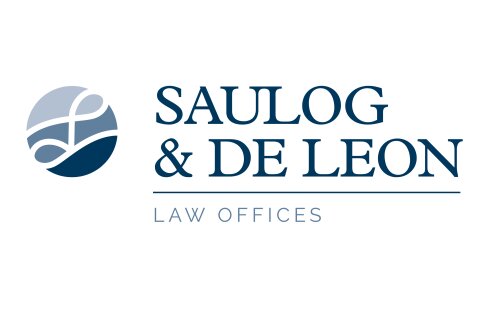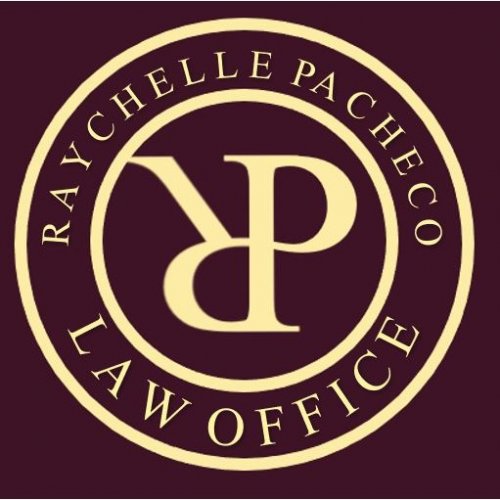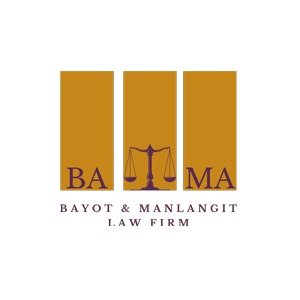Best Estate Planning Lawyers in Philippines
Share your needs with us, get contacted by law firms.
Free. Takes 2 min.
Or refine your search by selecting a city:
List of the best lawyers in Philippines

Dagsaan Monterde Castillo Law and Notary Public (DMC LAW)
15 minutes Free ConsultationPhilippines Estate Planning Legal Questions answered by Lawyers
Browse our 3 legal questions about Estate Planning in Philippines and read the lawyer answers, or ask your own questions for free.
- Who has the legal right to own a property: the one with the Tax Dec with the name of the deceased father (still not transferred by other claimants for 20 years) or the one with the copy of Deed of Absolute Sale of the property showing that it was sold by
- Who has the legal right to own a property: the one with the Tax Dec with the name of the deceased father (still not transferred by other claimants for 20 years) or the one with the copy of Deed of Absolute Sale of the property showing that it was sold... Read more →
-
Lawyer answer by Recososa Law Firm
Hello: Property ownership questions like this can be emotionally and legally complex—especially when families, old documents, and long periods of inaction are involved. We're here to help you sort this out clearly and lawfully. You mentioned two parties: The one...
Read full answer - Estate settlement dispute
- My grandfather (testator) Died in 1996. There are 8 heirs (siblings) mentioned in his will. The estate tax has not been paid until now. 4 out of 8 sold me their share with a notarized deed of sale and a deed of donation. The other 3 wanted to invalidate/ cancel... Read more →
-
Lawyer answer by Nomos Legal Practice
Hello and thank you for contacting SK Solicitors, a full-service immigration law firm based in Lagos, Nigeria. Kindly let us know how we can help you to solve your legal needs and before we can render legal advice service, you...
Read full answer - Unjust & unfair transfer of title to the heirs.
- Here's a refined version of your statement: "The original owners of the estate were our deceased grandparents. Initially, there was a single-parent land title with an extrajudicial agreement among heirs regarding the subdivision of lots. However, the Local Government Unit (LGU) purchased four parcels of land and transferred the title... Read more →
-
Lawyer answer by Nomos Legal Practice
Hello and thank you for contacting SK Solicitors, a full service immigration law firm based in Lagos, Nigeria. Best Regards, Kingsley Izimah, Esq.
Read full answer
About Estate Planning Law in Philippines
Estate Planning in the Philippines involves the preparation and organization of an individual's assets during their lifetime to ensure a smooth and efficient transfer to beneficiaries after death. This process typically includes drafting wills, setting up trusts, and making arrangements for estate taxes. The goal is to ensure that the deceased's wishes are honored while minimizing potential legal disputes and tax liabilities for the heirs.
Why You May Need a Lawyer
There are several situations where seeking legal help in Estate Planning is beneficial:
- Complex Family Situations: If you have children from previous marriages or complex family dynamics, legal advice can help structure your estate to honor commitments to all parties.
- Significant Assets: Individuals with substantial real estate, business interests, or investments can benefit from legal strategies to minimize taxes and facilitate asset distribution.
- Non-standard Wishes: If you wish to make unusual bequests or charitable contributions, a lawyer can ensure these are executed legally.
- Minimizing Disputes: A well-drafted legal plan reduces the chances of family disputes and potential litigation after death.
Local Laws Overview
Estate Planning in the Philippines is governed by the Civil Code and other pertinent laws. Key aspects include:
- Compulsory Heirs: Under Philippine law, certain heirs cannot be disinherited. These include spouses, children, and parents, with specified shares.
- Wills: The testator must be of legal age, sound mind, and must follow specific formalities for a will to be valid.
- Trusts: Establishing a trust requires a clear declaration of purpose and a designated trustee to manage the assets for the beneficiaries.
- Estate Taxes: Estate planning involves understanding inheritance taxes, which must be settled before assets can be distributed.
- Joint Ownership: Jointly owned properties may bypass probate, but legal guidance may be necessary to ensure proper transfer of ownership.
Frequently Asked Questions
What is the importance of a will in the Philippines?
A will outlines how your assets should be distributed after your death. Without it, the distribution is done according to the default rules set by the law, which may not align with your wishes.
Who are considered compulsory heirs in the Philippines?
Compulsory heirs typically include the surviving spouse, legitimate/illegitimate children, and in some cases, parents. They are entitled to specific portions of the estate by law.
Can I disinherit a compulsory heir?
Disinheriting a compulsory heir is challenging and can only be done for legally defined reasons, such as serious offenses against the testator, as outlined in the Civil Code.
How is the estate tax calculated in the Philippines?
The estate tax is based on the net estate value after deductions like outstanding debts and mortgages. The tax rate may vary, so it is advisable to consult a lawyer for accurate computation.
What happens if I die without a will?
If you die intestate (without a will), your estate is distributed according to the laws of intestacy, and compulsory heirs will receive shares as specified by law.
Can foreigners own property in the Philippines through estate planning?
Foreigners can inherit property in the Philippines, but ownership is subject to legal restrictions. Legal advice is necessary to navigate these complexities.
Is it necessary to notarize a will in the Philippines?
While not required, notarization can help authenticate the will and facilitate the probate process by attesting to its validity and the voluntariness of the testator.
What is probate, and why is it required?
Probate is a legal process to validate a will and settle the deceased's estate. It ensures the rightful distribution of assets and settlement of debts.
Can I appoint anyone as the executor of my will?
You can appoint any trusted individual as your executor, but it is wise to choose someone with the capability to manage your estate efficiently.
How can I ensure my estate plan remains valid over time?
Regularly review and update your estate plan to reflect changes in assets, laws, or personal circumstances, ideally with legal assistance.
Additional Resources
For further assistance in estate planning, consider reaching out to the following resources:
- Integrated Bar of the Philippines (IBP): Offers legal resources and services, including lawyer referrals.
- Bureau of Internal Revenue (BIR): Provides information on estate taxes and filing requirements.
- Philippine Association of Estate Planners: Professional organization that offers guidance and support to estate planners.
- Local Government Units (LGUs): Often have offices or personnel to assist with legal matters related to estate planning.
Next Steps
If you require legal assistance in estate planning, consider the following steps:
- Consult with a qualified estate lawyer to discuss your specific situation and objectives.
- Gather all relevant information and documents related to your assets and potential heirs.
- Work with your lawyer to draft or update necessary legal documents such as wills, trusts, or powers of attorney.
- Review and adjust your estate plan regularly to accommodate life changes or new legal developments.
- Inform trusted family members or executors about your estate plans to facilitate smoother implementation in the future.
Lawzana helps you find the best lawyers and law firms in Philippines through a curated and pre-screened list of qualified legal professionals. Our platform offers rankings and detailed profiles of attorneys and law firms, allowing you to compare based on practice areas, including Estate Planning, experience, and client feedback.
Each profile includes a description of the firm's areas of practice, client reviews, team members and partners, year of establishment, spoken languages, office locations, contact information, social media presence, and any published articles or resources. Most firms on our platform speak English and are experienced in both local and international legal matters.
Get a quote from top-rated law firms in Philippines — quickly, securely, and without unnecessary hassle.
Disclaimer:
The information provided on this page is for general informational purposes only and does not constitute legal advice. While we strive to ensure the accuracy and relevance of the content, legal information may change over time, and interpretations of the law can vary. You should always consult with a qualified legal professional for advice specific to your situation.
We disclaim all liability for actions taken or not taken based on the content of this page. If you believe any information is incorrect or outdated, please contact us, and we will review and update it where appropriate.
Browse estate planning law firms by city in Philippines
Refine your search by selecting a city.
















